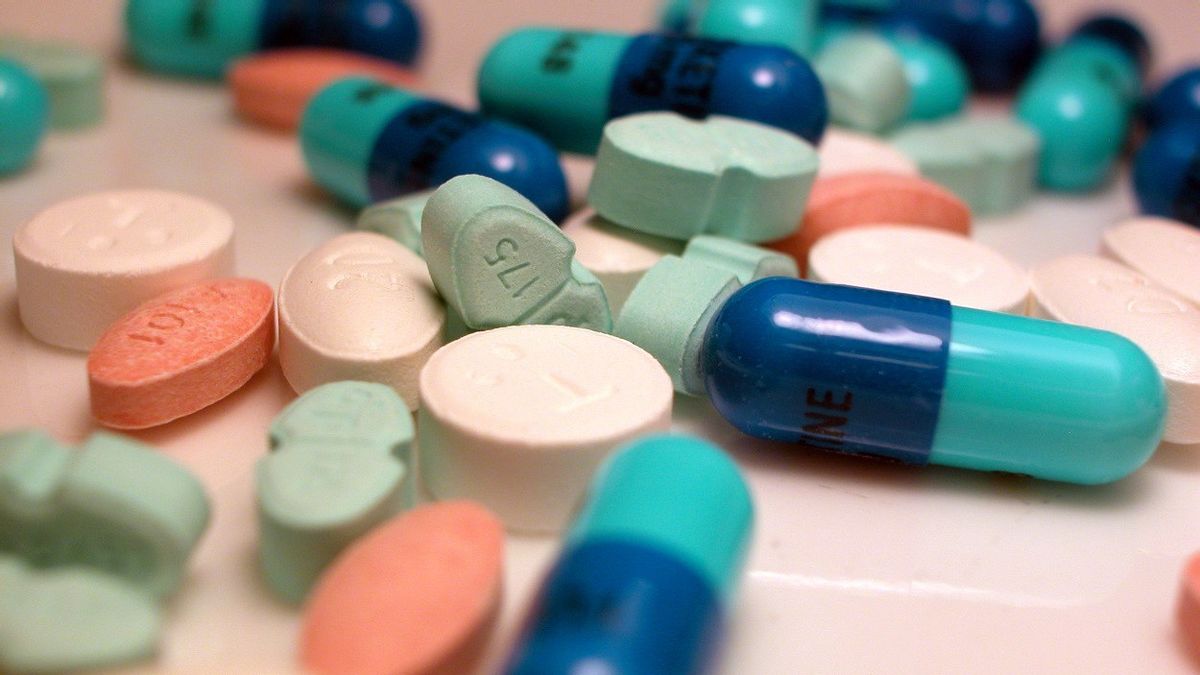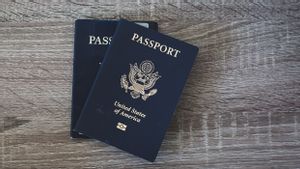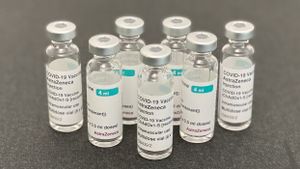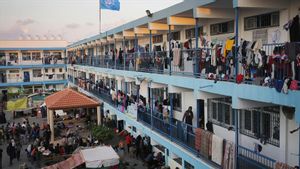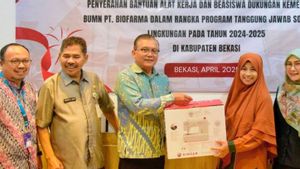JAKARTA - The United States (US) on Wednesday approved Pfizer's antiviral COVID-19 pill, for people 12 years of age and older who are at risk of serious illness, as the first home oral treatment and a new tool to fight the fast-spreading variant of Omicron.
Pfizer's antiviral regimen, Paxlovid, is nearly 90 percent effective in preventing hospitalization and death in patients at high risk of severe disease, according to data from the company's clinical trials. Recent laboratory data show the drug remains effective against Omicron, Pfizer said.
Pfizer raised its 2022 production forecast to 120 million treatment courses from 80 million, saying it was ready to start deliveries soon in the United States. The two-drug regimen includes a newer drug and a second, older antiviral called ritonavir.
The US government will have 265,000 treatment courses available in January and supplies will increase in the following months, White House COVID-19 response coordinator Jeff Zients said at a briefing. The government expects to receive 10 million courses that have been ordered within six months.
"Paxlovid's approval is a major milestone marking another step towards making COVID-19 a much more manageable infection," said Amesh Adalja, a senior scholar at the Johns Hopkins Institute for Health Security.
"However, two major issues remain: It will be rare in the coming weeks and its optimal use requires prompt diagnosis, which can be difficult with the constant testing issues plaguing us," Adalja added.
Separately, Pfizer says it has 180,000 grooming courses ready to ship this year. The US government contract for 10 million drug courses is valued at 530 US dollars per course.
The Food and Drug Administration's (FDA) decision to issue emergency authorizations for these treatments comes as the US battles a surge in COVID-19 cases driven by the Omicron variant, with President Joe Biden announcing plans for more vaccinations and federal testing sites.
The pill could fill a treatment gap opened by the Omicron variant, said William Schaffner, a leading infectious disease expert at Vanderbilt University School of Medicine. The most widely used monoclonal antibody treatments for COVID-19 have proven to be less effective in combating the variant and there is a limited supply of one treatment remaining that works, he said.

Monoclonal antibodies are usually given intravenously in a hospital, are not widely available and are more than twice the price of Pfizer pills.
Meanwhile, the FDA said it authorized Paxlovid for emergency use for the treatment of mild to moderate illness in adults and children 12 years of age and older, who are at high risk for developing severe COVID-19.
This drug is only available by prescription and should be started as soon as possible after a COVID-19 diagnosis and within five days of the onset of symptoms, the FDA said. The pills are meant to be taken every 12 hours for five days.
While the clinical trial did not include patients under the age of 18, Pfizer said, an authorized adult dosing regimen is expected to produce comparable blood levels of drug concentrations in pediatric patients 12 and older weighing at least 40 kg (88.2 lbs).
The second drug, ritonavir, is known to interact with several other prescription drugs. Pfizer said it should be manageable and suggested most patients would be able to lower their other drug doses while being treated for COVID-19.
SEE ALSO:
Pfizer said it plans to file a new drug application with the FDA in 2022 seeking full regulatory approval.
To note, Pfizer has agreed to allow generic manufacturers to supply versions of the medication to 95 low- and middle-income countries through a licensing agreement with the international public health group Medicines Patent Pool (MPP).
A rival pill from Merck & Co (MRK.N) is being reviewed by the FDA. The drug, molnupiravir, which was developed with Ridgeback Biotherapeutics, reduced the risk of hospitalization and death by 30 percent in the trial.
The English, Chinese, Japanese, Arabic, and French versions are automatically generated by the AI. So there may still be inaccuracies in translating, please always see Indonesian as our main language. (system supported by DigitalSiber.id)
